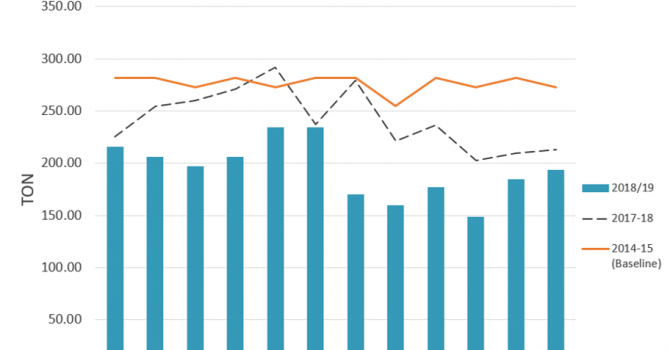Mental Models, Changing Minds for Sustainability
Prof. Paul W Forster, Senior Lecturer of the Division of Environment & Sustainability (ENVR), Program Co-director of BSc in Environmental Management and Technology Program (EVMT) and Associate Professor of Business Education, has been awarded the IPO Teaching Excellence Award 2018/19 at postgraduate category. He is the instructor for EVSM5300 “Corporate Environmental Strategy”. He demonstrated the ability of catering diverse academic backgrounds of students in his class. Various interactive methods like case study, simulations, games and small group discussions had been used in the course to stimulate active participation and analysis. Prof Forster believes that sustainability is greatly impacted by ‘Mental Models’.
These mental models stem from the iceberg model. At the top of the iceberg are events, like Australian bushfires. Under that are patterns, like increasing droughts. Under that are the structures creating these patterns, like the energy infrastructure that releases carbon into the atmosphere. And at the very bottom, are mental models.
He preaches “If someone wants to change the world, they need to change their mind first”. Out of the gazillion bits of information in front of us, our actions and choices are only affected by a select few that relate to our mental models of the world. Simply put, we “know” because we have a model. For example; We “know” that the bottle of water is for drinking and that phones are for talking because of our mental models.
Having faced a lot of exposure and experience, humans have inherited a lot of different models. We generally don’t question our models. They’re just there and they seem right. Except in reality, all our models are wrong. All of them. Even the best models are actually just shorthand approximations. The problems we see now have been caused by collectively running our models again and again.” Prof Forster believes that changing one’s models is essential if they wish to solve these problems. If we truly want to put a stop to the melting glaciers, excessive consumption and human-caused environmental disasters, then he suggests that we reexamine our models and question them. Where did this come from? Why do I believe in this model? Prof Paul says that once we start questioning our models, we will see an opportunity for change everywhere. That’s when we’ll start building better models.

